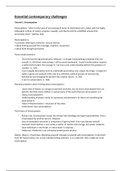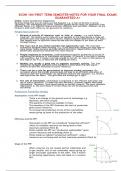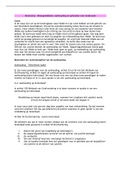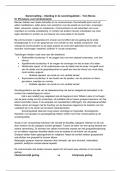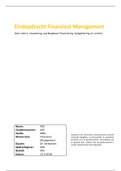Samenvatting
Full (lecture + tutorial) summary: Essential Contemporary Challenges
Full summary on the lectures and tutorials of the course: Essential Contemporary Challenges given on the Erasmus University for first year Philosophy students and Minor students.
[Meer zien]
